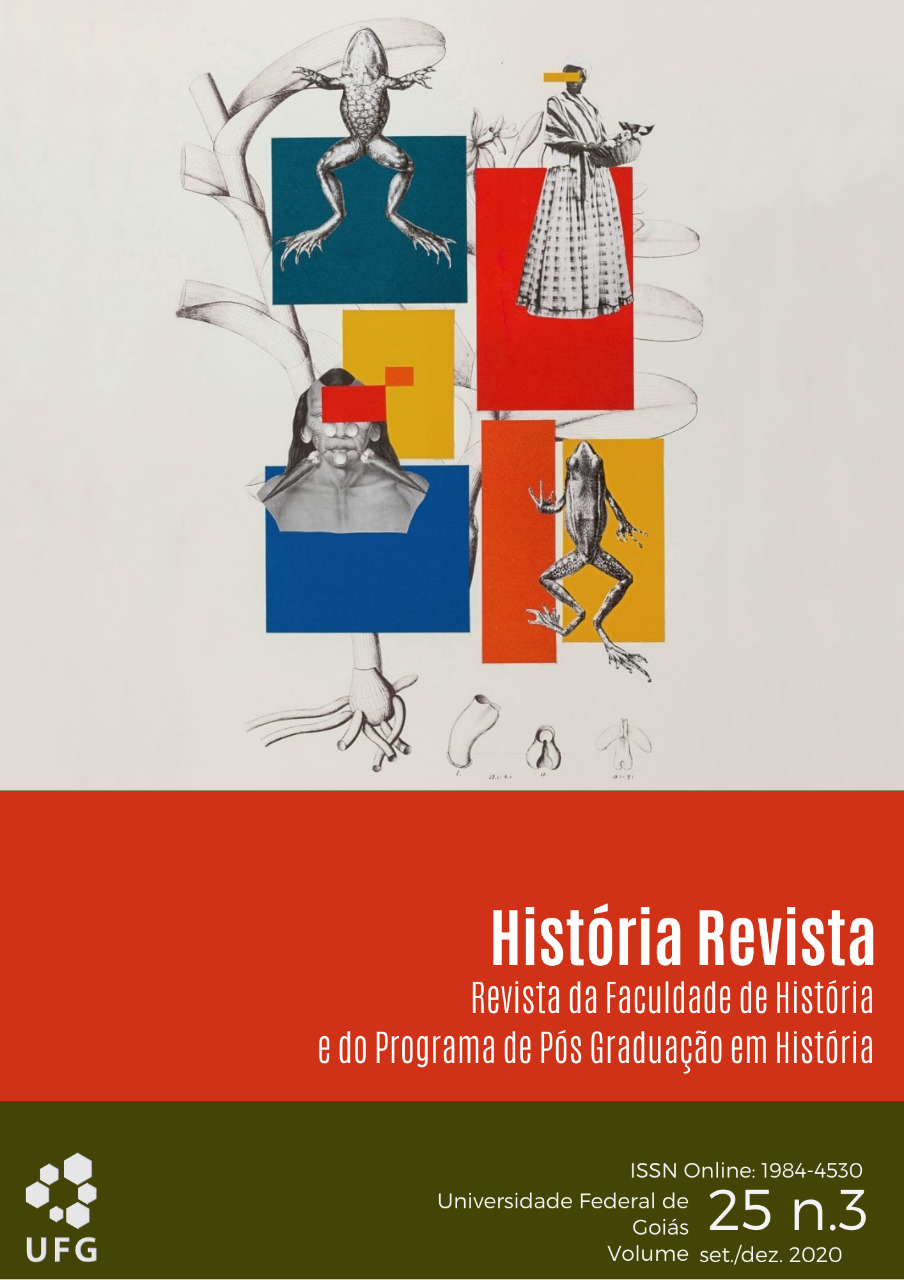O contrapelo da história
os negros e indígenas nos caminhos fluviais até o Mato Grosso nas narrativas elaboradas viajantes (séculos XVIII e XIX)
DOI :
https://doi.org/10.5216/hr.v25i3.65313Résumé
O presente artigo pretende analisar a menção e abordagens dos negros e povos indígenas em obras produzidas por viajantes que transitaram pelo Mato Grosso entre os séculos XVIII e XIX, especialmente através das rotas fluviais. Provocado pela proposta metodológica defendida por Walter Benjamin acerca da necessidade de ler a “contrapelo” as fontes da história a fim de dar voz àqueles que foram vencidos ou colocados nas margens das narrativas históricas, analisaremos os textos produzidos por Hércules Florence, João Gonçalves Fonseca, João Vasco Manoel de Braun e Alexandre Rodrigues Ferreira. No transcorrer da reflexão notar-se-á que o material detém grande potencialidade também para pensar o processo de expansão e consolidação colonial no oeste do atual território brasileiro, principalmente durante os contatos entre as diferentes civilizações e culturas.
Téléchargements
Téléchargements
Publié-e
Comment citer
Numéro
Rubrique
Licence
Declaração de Direito Autoral
Concedo à História Revista o direito de primeira publicação da versão revisada do meu artigo, licenciado sob a Licença Creative Commons Attribution, que permite o compartilhamento do trabalho com reconhecimento da autoria e publicação inicial nesta revista.
Afirmo ainda que meu artigo não está sendo submetido a outra publicação e não foi publicado na íntegra em outro periódico, assumindo total responsabilidade por sua originalidade, podendo incidir sobre mim eventuais encargos decorrentes de reivindicação, por parte de terceiros, em relação à autoria do mesmo.



